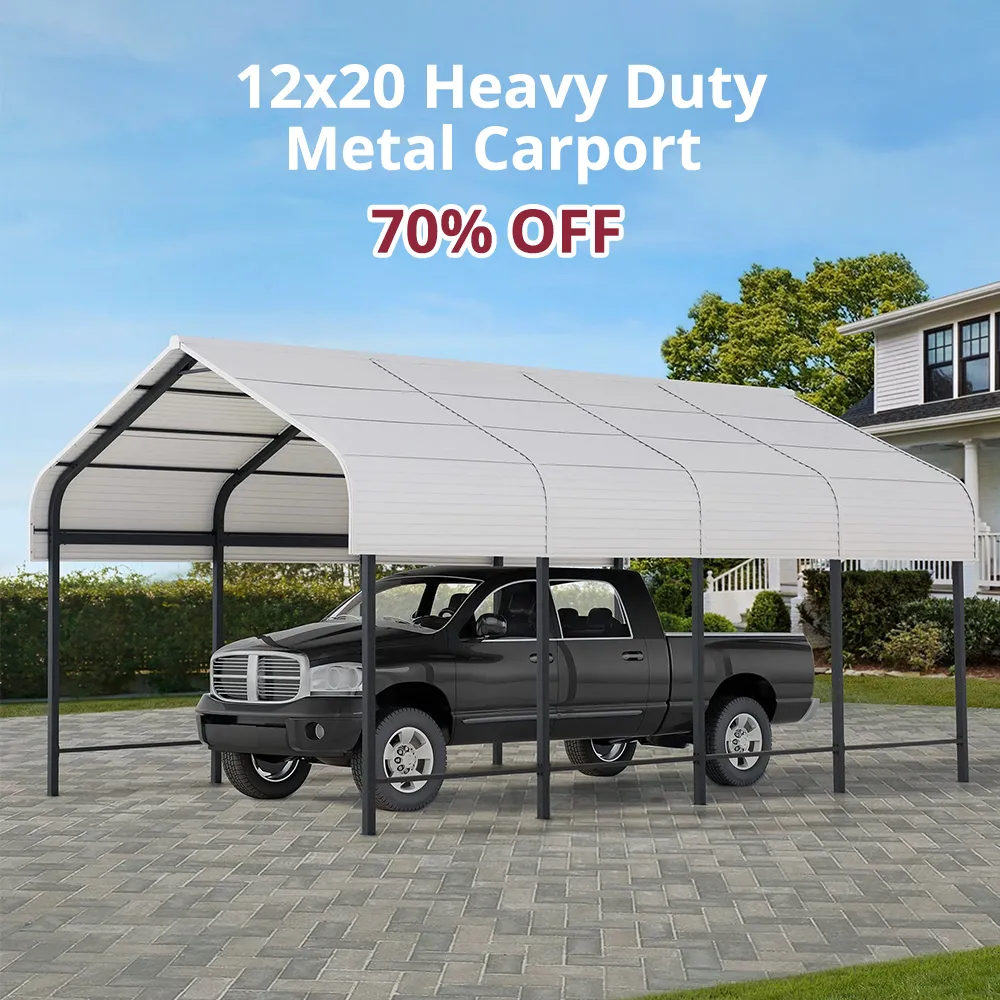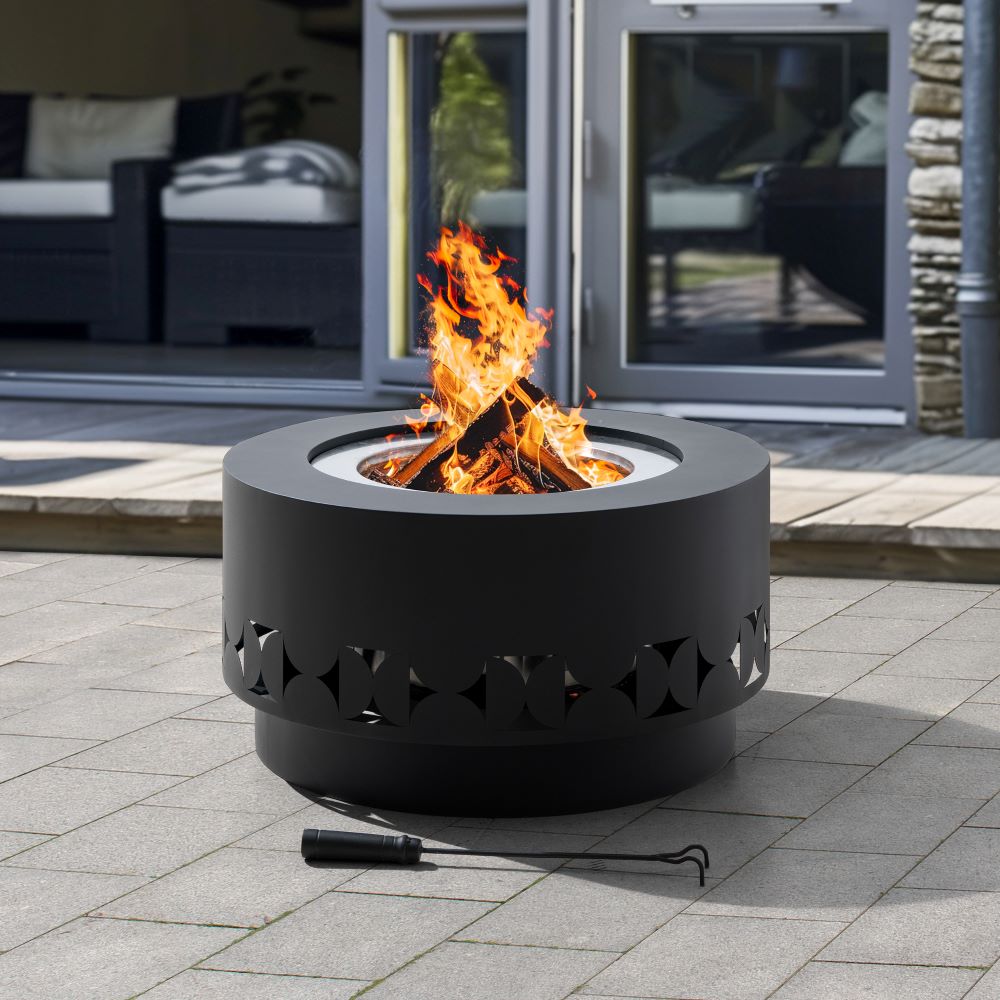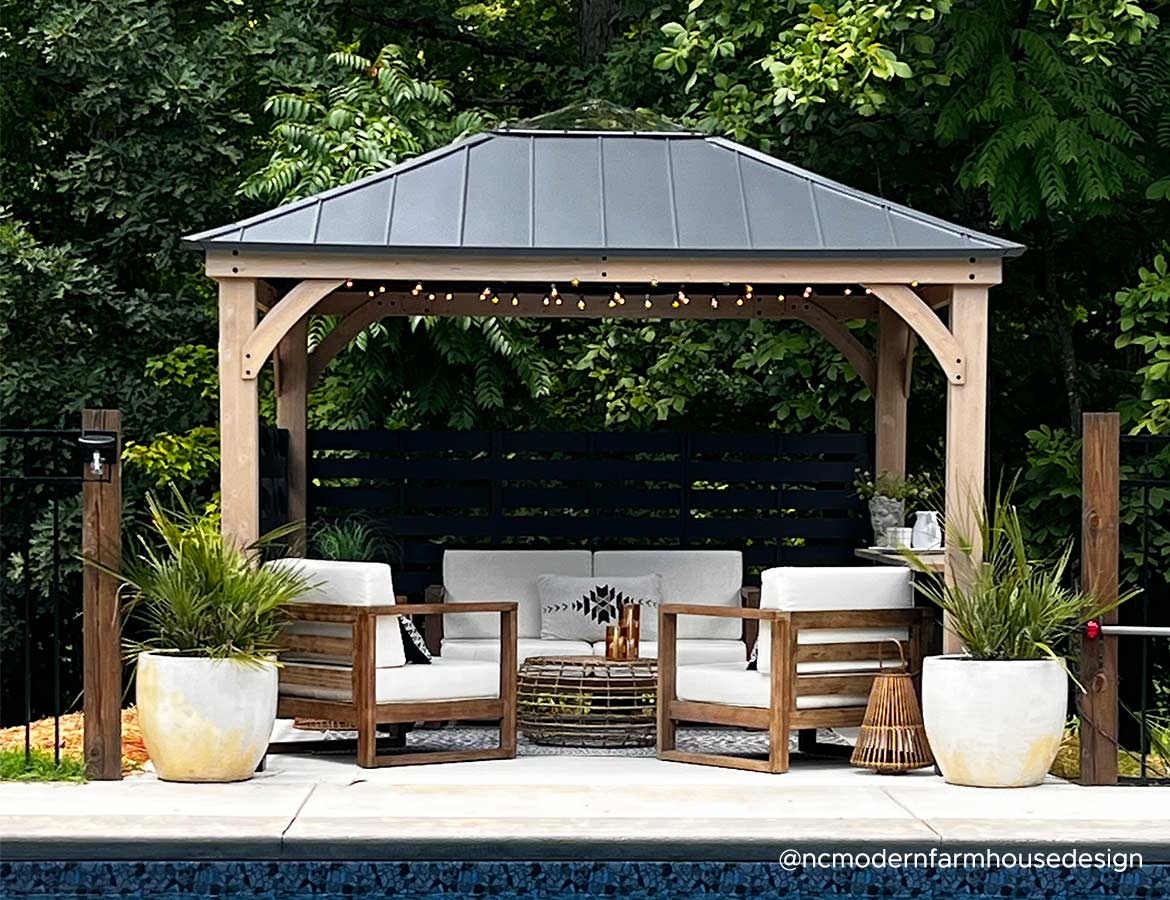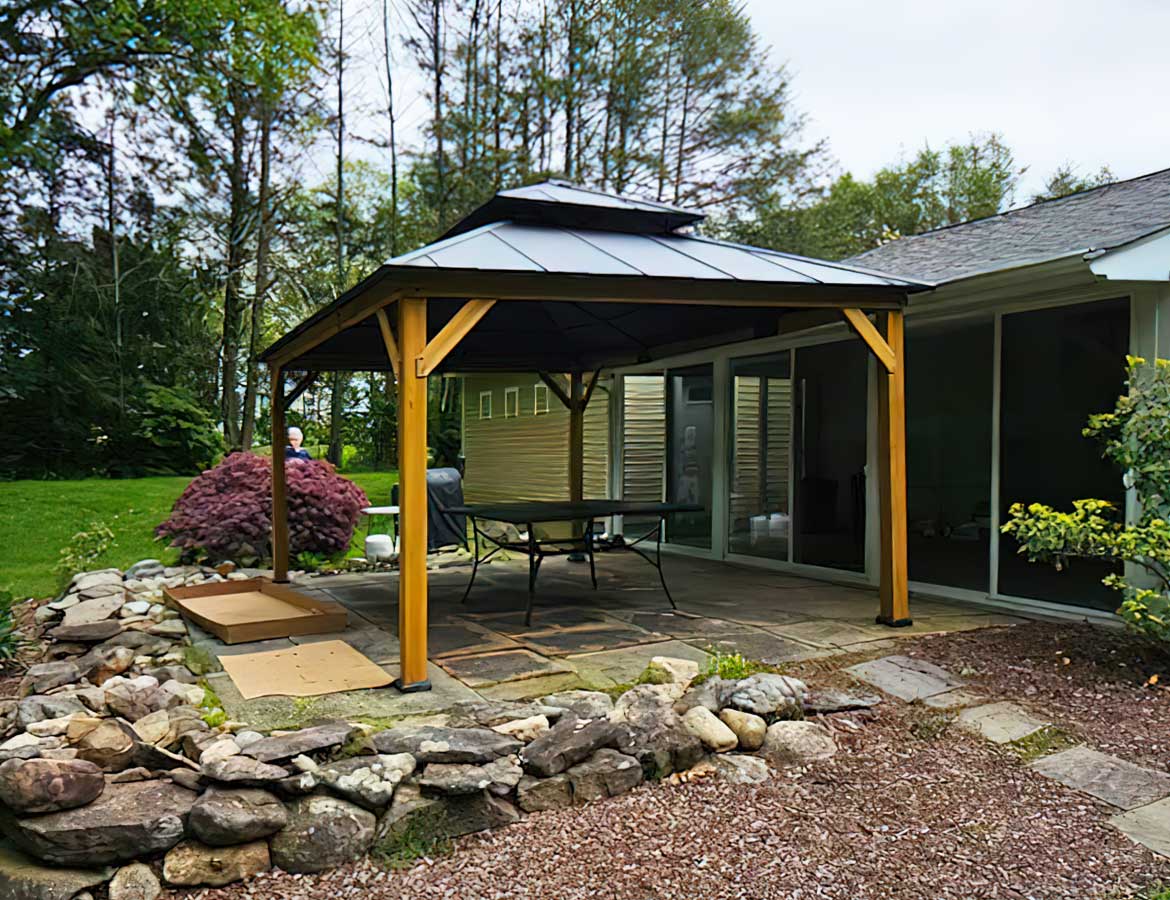When designing the perfect outdoor structure, homeowners often ask: Can you mix metal framing with wood accents in a gazebo? The answer is a confident yes. In fact, combining metal and wood is not only possible—it’s one of the most popular and practical design trends for creating a modern yet natural outdoor space.
This blog explores the benefits, design strategies, structural considerations, and long-term value of using both materials in your gazebo design. Plus, we’ll highlight how SUNJOY’s expertly engineered gazebo kits seamlessly combine strength, beauty, and ease of installation using hybrid materials.
Why Mix Metal and Wood in a Gazebo?
Blending materials isn’t just about visual appeal. It also improves performance and maintenance. Here’s why the combination works so well:
1. Aesthetic Balance
Wood softens the look of industrial metal and brings warmth to outdoor spaces. Metal, on the other hand, provides sleek lines and a modern finish that pairs well with rustic elements.
2. Structural Integrity
Metal framing offers superior strength and load-bearing capacity, while wood accents are easier to customize and replace when needed.
3. Weather Resistance
Powder-coated steel or aluminum resists rust and corrosion. When paired with pressure-treated or sealed wood, you get a durable gazebo that handles weather beautifully.
4. Design Versatility
Mixing materials allows homeowners to complement both natural surroundings and architectural styles—ideal for suburban homes, cabins, or urban patios.
Key Design Considerations
To successfully mix metal and wood in a gazebo design, keep these principles in mind:
1. Define the Frame vs. Accent Roles
Use metal framing for the skeleton—posts, beams, and roofing structure
Add wood accents for ceiling panels, trim, railings, planters, or decorative lattice
This division maintains stability while giving you design flexibility.
2. Choose Compatible Materials
Metal: Powder-coated aluminum or galvanized steel
Wood: Cedar, redwood, or pressure-treated pine sealed for outdoor use
Avoid untreated softwoods or raw metals that degrade faster outdoors.
3. Account for Expansion and Contraction
Wood expands and contracts more than metal with temperature and humidity. Use floating joints or allow space for movement in wood elements.
4. Use Corrosion-Resistant Fasteners
Opt for stainless steel or coated hardware when attaching wood to metal to prevent rust and electrochemical reactions.
Design Ideas for Mixed-Material Gazebos
Modern Pergola with Wood Slats
Use a black metal frame with horizontal wood privacy slats
Great for creating partial shade and visual texture
Hardtop Gazebo with Exposed Wooden Rafters
Install a metal roof over decorative cedar beams
Combines industrial strength with rustic charm
Ceiling Accent Panels
Add wood planks between metal roof supports
Enhances warmth without affecting structural integrity
Built-In Planters or Railings
Frame in metal, infill with stained wood
Adds function and contrast
SUNJOY Gazebos That Blend Metal and Wood
SUNJOY has pioneered hybrid gazebo designs that effortlessly blend both materials. Here are a few standout examples:
1. SUNJOY 12x16 Cedar-Framed Hardtop Gazebo
Features a durable powder-coated steel roof with a rich cedar frame
Weather-resistant and elegantly designed for backyard entertaining
2. SUNJOY 11x13 Steel-Framed Pergola with Woodgrain
Steel structure for durability, paired with faux-wood grain trim
Low-maintenance, high-impact visual appeal
3. SUNJOY 11x13 Woodgrain Soft-Top Gazebo
Blends steel framing with wood-finished posts
Comes with netting for versatile outdoor use
These gazebos are designed for ease of installation and long-term reliability.
Long-Term Maintenance Tips
When mixing metal and wood, follow these care practices:
Wood Maintenance:
Re-stain or seal wood every 1–2 years
Inspect for rot, cracks, or insect activity
Metal Care:
Clean metal parts with soap and water periodically
Touch up scratches with rust-inhibiting paint
Joint Protection:
Check connection points seasonally
Use rubber washers or silicone seals where metal meets wood
Pros and Cons of Hybrid Gazebo Designs
Pros:
Stronger frame and longer lifespan
Improved weather resistance
Visually attractive and modern
Fits diverse design aesthetics
Cons:
Slightly higher upfront material cost
Requires careful installation to avoid expansion stress
Still, the long-term payoff in style, durability, and low maintenance is worth the effort.
Final Verdict: Metal and Wood Are Better Together
Combining metal framing with wood accents in a gazebo design is not just okay—it’s smart. You gain strength, beauty, and flexibility in one cohesive structure. By using wood where you want visual warmth and metal where you need support, you get the best of both worlds.
For homeowners looking to build or upgrade their gazebo, SUNJOY’s metal-and-wood designs are a top choice. Backed by thoughtful engineering and premium materials, these gazebos deliver performance and style that lasts.






Leave a comment
All comments are moderated before being published.
This site is protected by hCaptcha and the hCaptcha Privacy Policy and Terms of Service apply.